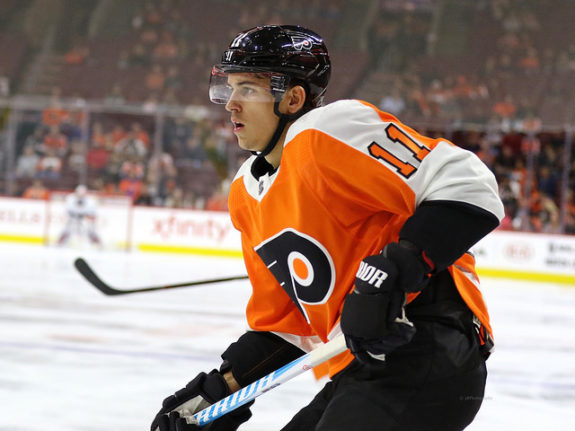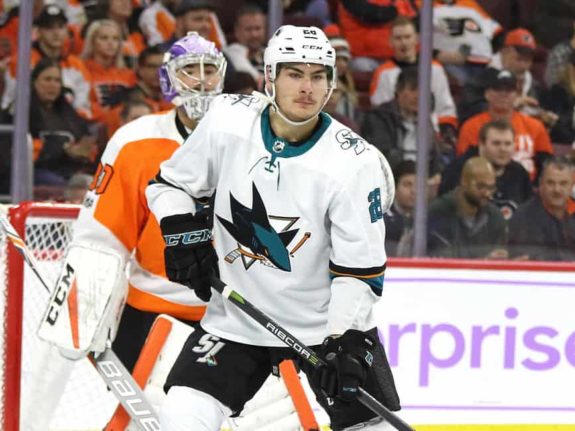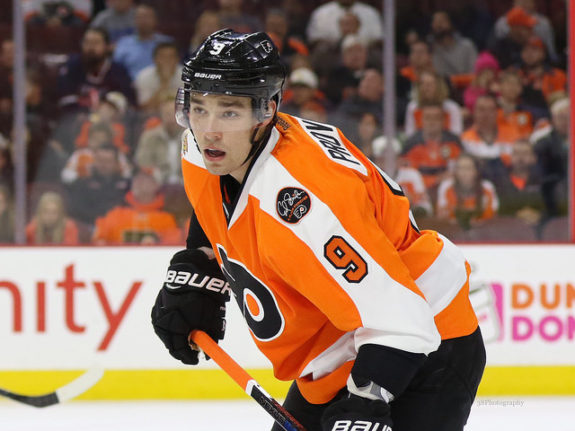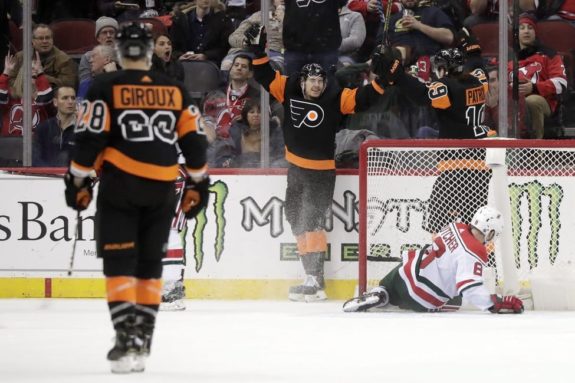In these dog days of summer, when the excitement of the draft and free agency have faded and the majority of rosters have taken shape, minor alterations and depth signings aside, the Philadelphia Flyers still have some hard work left to be done.
Restricted free agents (RFAs) Travis Konecny and Ivan Provorov have yet to be signed to contract extensions. The price point at which they’ll ultimately sign will go a long way to determining the Flyers’ cap flexibility in the coming years.
The outcome will also offer an look inside the psyche of these players; how they view themselves at this point in their careers and what they value most.

A bridge deal for either player means they think highly of themselves and are willing to roll the dice to try and cash in on a big payday on their next contract. Long-term deals will indicate that they put a premium on financial security and enjoy the city enough to tie themselves to it for the foreseeable future. It also shows just how much the organization values them and how they see them moving forward.
Regardless of the outcome, these contracts will provide information regarding the future of the franchise. When and at what price will these deals land?
Travis Konecny, RW
Of the two contracts, Konecny’s appears to be the easiest to project. Contracts in the NHL are largely negotiated through comparables. In other words, agents use the average annual value (AAV) of contracts given to other players whose stat lines are similar – like points per game (PPG) – and who are used in similar roles, to set a benchmark for how much their client deserves to be paid.
As a young scoring winger, Konecny has a few player comparables to frame a contract range. For example, RFA wingers Timo Meier of the San Jose Sharks and Jakub Vrana of the Washington Capitals were both handed extensions this offseason and give us a good idea of where Konecny’s contract will end up.
| Name | Age | PPG in 2018-19 | AAV/Term |
| Travis Konecny | 22 | 0.60 | ? |
| Jakub Vrana | 23 | 0.57 | $3.35 mil / 2 years |
| Timo Meier | 22 | 0.85 | $6 mil / 4 years |
Based on age and PPG, Konecny will land somewhere in the $4-$5 million AAV range when compared to the contracts handed out to Vrana and Meier. Which side of that spectrum the contract leans will depend on how much term he is willing to take on.
If he decides to sign a bridge deal similar to Vrana’s, in the two – three year range, his AAV will land around $3.8 to $4.3 million. If he chooses to take a four-year deal akin to the Meier contract, the price will likely be bumped up to between $4.75 to $5.3 million in AAV.

Anything over a four-year term means the Flyers will be buying unrestricted free agency years from Konecny, capping his ability to earn more on the open market, and thus creating yet another bump in AAV. Any long-term deal will cost at least $5.6 million a year and may even match the $6 million AAV given to Meier.
Ivan Provorov, D
While Konecny has multiple comparables from this offseason alone, Provorov’s case is unique. Provorov’s closest comparables are the Boston Bruins’ Charlie McAvoy and the Columbus Blue Jackets’ Zach Werenski, but neither have signed extensions yet.
Once the first domino falls from that group, the others will have a framework to base a deal around. Don’t be surprised if negotiations with his camp drag on until the start of training camp, and perhaps even into it.
Everything’s cordial and amicable, but I think until the market settles out a bit, it may be difficult to move forward on Provorov.
Chuck Fletcher – ‘Provorov, Konecny in contract talks with Flyers,’ NHL.com
Let’s start with what we know about Provorov. In his rookie season, as a 19-year-old, he showed a good deal of promise locking down a top-line gig by the midway point of the season; he posted 30 points in 82 games while averaging 21:59 a night. He also posted mediocre underlying numbers losing the shot attempts battle to the tune of a 46.75 Corsi For% (CF%) according to Corsica.
In his sophomore season, all of that promise culminated in a season that saw him tie the league lead for goals by a defenseman (17 goals), tally 41 total points, and bump his average ice time up to 24:09. For the season, his underlying metrics remained mediocre (47.34 CF%) but were legitimately excellent when he played next to offensive dynamo Shayne Gostisbehere.
Finally, last season everything seemed to go wrong for Provorov as he struggled with physical and mental mistakes and in his own zone, letting up high-quality chances against fairly often. The only constant was, again, poor shot metrics, this time with a 45.40 CF%.
All-in-all, he’s had one good season, one great season, and one pretty bad season, a mixed bag of results that makes projecting his future performance difficult. The Flyers will point to this as leverage to keep the price down.
Provorov’s biggest selling point at this point is the trust the Flyers’ coaching staff has put in him thus far. Last season, despite his struggles, he constantly matched up against the opposing team’s top line and averaged over 25 minutes of ice time a game.
Whether the Flyers believe he is one or not, they have been playing him like a top defenseman, and he deserves to be compensated as such. At the bare minimum, he has earned himself at least a $5.5 to $6 million AAV contract, regardless of term.

That is the floor. How high is the ceiling? Despite what the numbers say, when you watch Provorov play, he looks like he’s not even close to his ceiling.
Assuming the front office has the utmost confidence that he’ll eventually reach that ceiling, they’ll aim to lock him down long-term at all costs. To sign him to the max eight-year extension, the deal will have to reach or eclipse $8 million AAV.
A deal this expensive presents a huge risk/reward scenario for the Flyers. If he hits his ceiling, this deal becomes a bargain. If he doesn’t, it becomes an albatross. That’s a fine line to walk for a team that’s spent the majority of the decade pushed against the cap.
A seven-year deal may be the sweet spot for this contract, trimming a year and roughly $1 million off the AAV helps mitigate the risk on the Flyers’ side while also giving them what they really want, which is Provorov roaming the blue line for the foreseeable future.
Related: Bruins Need to Avoid Bridge Deal with McAvoy
Final Contract Predictions
It’s up to the parties involved to dictate in what direction these contracts will go, but there is a range that benefits both sides.
If I had to guess, I imagine Konecny will ink a three-year deal at around $4.1 million AAV, good value for both sides as the Flyers lock in a top-six winger with tremendous upside while retaining his RFA rights; while Konecny gets the chance to earn a huge payday at the conclusion of the deal. Win-win.

As for Provorov, I see two possible deals that would fit the needs of both parties. A four-year bridge deal at $6 million AAV benefits the Flyers in the short-term and gives Provorov the chance to cash-in later, while still getting paid adequately for the time he’s already put in.
I believe the Flyers will end up extending a long-term offer. They want him locked up for as long as possible, but it will cost them. My guess is that Provorov signs a seven-year extension at at least $7 million AAV, making him the anchor of the blue line for the majority of the decade.